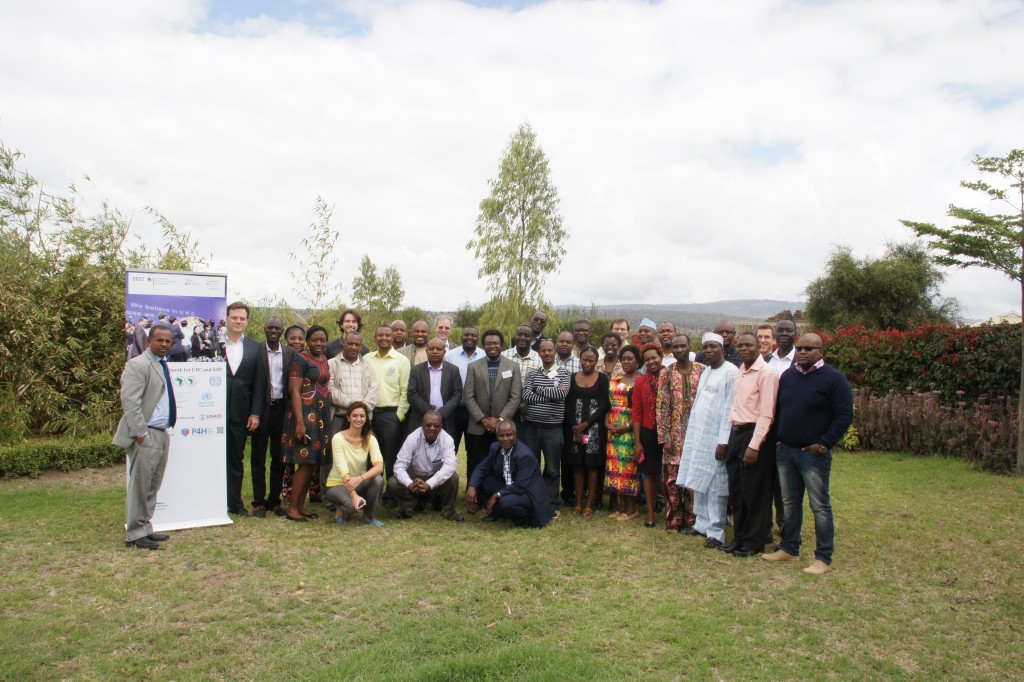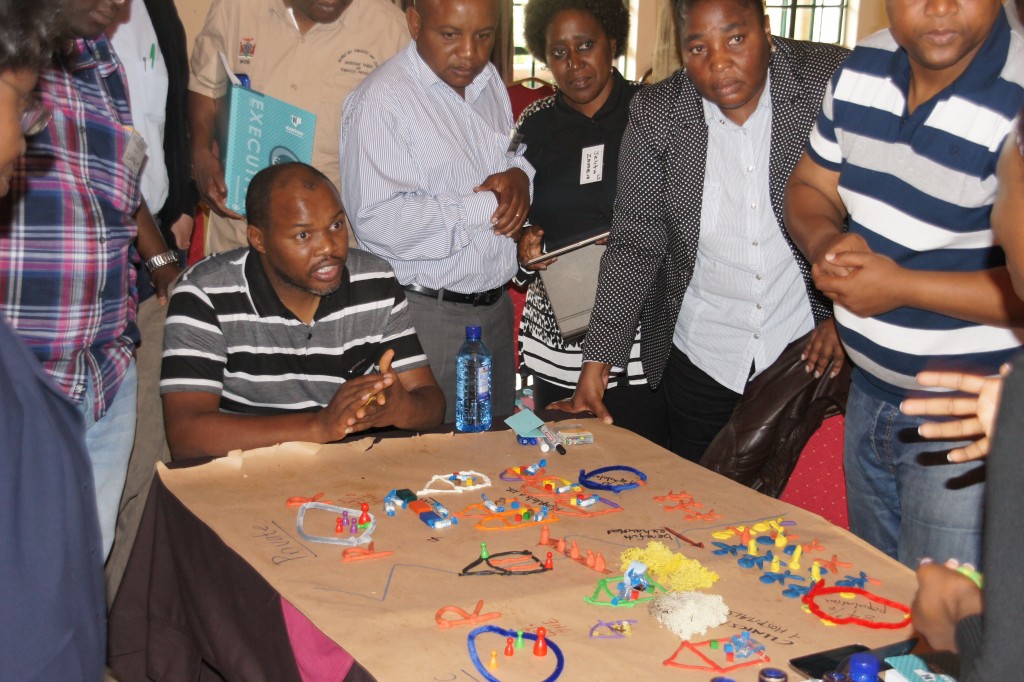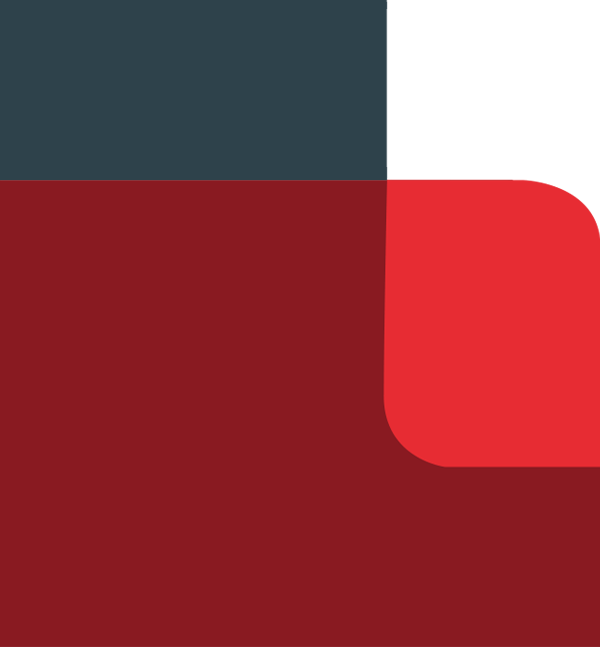Learning among leaders.
Thirty-one leaders from six African countries met in Kenya from 10-14 November 2014 for the second module of the Leadership for UHC Program, organized jointly by the GIZ and World Bank. Building on skills developed since the beginning of the program, they designed and peer-reviewed country team initiatives aimed at moving their domestic UHC agendas forward through collective action. The shared goal is to make a real contribution to the process by March 2015.
The second module of the Leadership for UHC program is at the centre of the leadership journey participants undertake in the Program. This journey involves learning tools and developing skills to gain better insights into the existing challenges of UHC reform processes, to develop stronger commitment to addressing them and to design better interventions to address them. Its focus is to support leaders in meeting the challenges of change processes that have a technical side, but that at the heart require societies to change their ways. Mpuma Kamanga, Social Health Insurance Advisor in the Zambian Ministry of Health, explains that “when we initially started [the UHC reform process], we all thought it was very technical. It’s been a revelation that it is very political. […] Knowing how to manage the various stakeholders and their interests has really been a politically profound process.” This is what the Leadership for UHC Program aims to support participants in.
The second module was attended by leaders for UHC from Ethiopia, Kenya, Nigeria, South Africa, Uganda, and Zambia drawn from different constituencies including Ministries of Health, Labour and Finance, from Social Health Insurance Agencies, as well as from Civil Society Organizations, for example Robinah Kairitimba from the Ugandan National Health Consumers Organization. For a full list of the participants of both module 1 and 2, click here: 141115_LDUHC_TeamsAll
The agenda of the second workshop focused on generating a deep understanding of the challenges the participants are facing as individuals, teams and part of a wider stakeholder landscape at home. Participants analyzed their own countries’ UHC systems by developing models reflecting stakeholder’s positions, their alliances and their power with regards to UHC a UHC reform agenda. In the picture, Sifiso Maseko, a deputy CEO of one of the largest public hospitals of South Africa, explains the South African health financing system and the challenges for UHC related reforms to other participants.
Having developed a dynamic understanding of the complexity of their systems, participants then set out to develop their collective action initiatives to implement between the current and the last module. Several teams realized that a lot of technical analysis and reform design had been done, but that further dialogue and consensus building efforts are required to move from policies and strategies to effective access to health care. Each team developed an specific objective and an implementation plan to achieve to monitor their own progress and hold each other accountable for successes and failures. A full list of each team’s collective action initiative and an assessment of the context, the relevance of the initiative and the team’s positioning to achieve their goal can be found here: 2014-12-02_CollectiveActionInitiatives
Participants were positive that equipped with the tools, skills and the commitment developed during the program, they would succeed. Olalekan Olubajo of the Nigerian National Primary Health Care Development Agency explains that to get more traction for the reforms he champions, he will now move to a more inclusive leadership style, listen more and build his team. In this, the Nigerian and all other teams will be helped by the faculty through leadership coaching and thinking partnerships, as well as technical advice coordinated with local development partners. The last module, to be held between 9 and 13 March 2015 in Turkey, will give all teams to jointly review their progress and reflect on obstacles they faced and factors that led to success.
——
Please find below some of the presentations and course materials:
2014_11_14_Slides_U-theory_P4H-LDP_Martin_Nairobi
2014_11_11_Adaptive_Systems_P4H-LDP_Ceren_Nairobi
2014_11_14_Collective_Action_P4H-LDP_Ceren_Nairobi
2014_11_14_Selected_Issues_Collective_Action_P4H-LDP_Ceren_Nairobi
Thirty-one leaders from six African countries met in Kenya from 10-14 November 2014 for the second module of the Leadership for UHC Program, organized jointly by the GIZ and World Bank. Building on skills developed since the beginning of the program, they designed and peer-reviewed country team initiatives aimed at moving their domestic UHC agendas forward through collective action. The shared goal is to make a real contribution to the process by March 2015.
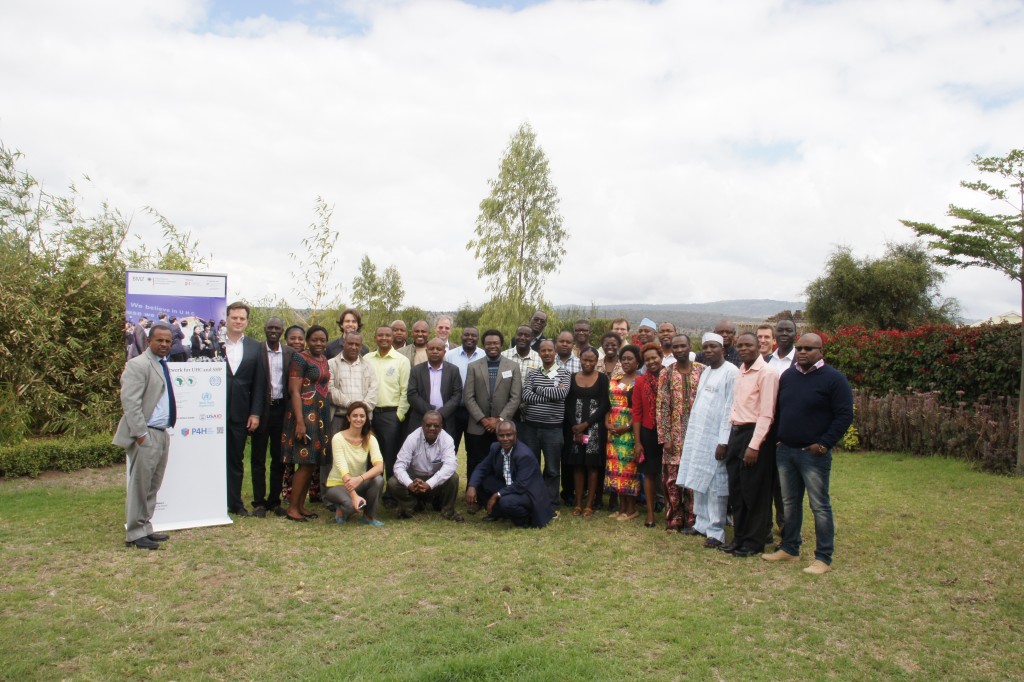
The second module of the Leadership for UHC program is at the centre of the leadership journey participants undertake in the Program. This journey involves learning tools and developing skills to gain better insights into the existing challenges of UHC reform processes, to develop stronger commitment to addressing them and to design better interventions to address them. Its focus is to support leaders in meeting the challenges of change processes that have a technical side, but that at the heart require societies to change their ways. Mpuma Kamanga, Social Health Insurance Advisor in the Zambian Ministry of Health, explains that “when we initially started [the UHC reform process], we all thought it was very technical. It’s been a revelation that it is very political. […] Knowing how to manage the various stakeholders and their interests has really been a politically profound process.” This is what the Leadership for UHC Program aims to support participants in.
The second module was attended by leaders for UHC from Ethiopia, Kenya, Nigeria, South Africa, Uganda, and Zambia drawn from different constituencies including Ministries of Health, Labour and Finance, from Social Health Insurance Agencies, as well as from Civil Society Organizations, for example Robinah Kairitimba from the Ugandan National Health Consumers Organization. For a full list of the participants of both module 1 and 2, click here: 141115_LDUHC_TeamsAll
The agenda of the second workshop focused on generating a deep understanding of the challenges the participants are facing as individuals, teams and part of a wider stakeholder landscape at home. Participants analyzed their own countries’ UHC systems by developing models reflecting stakeholder’s positions, their alliances and their power with regards to UHC a UHC reform agenda. In the picture, Sifiso Maseko, a deputy CEO of one of the largest public hospitals of South Africa, explains the South African health financing system and the challenges for UHC related reforms to other participants.
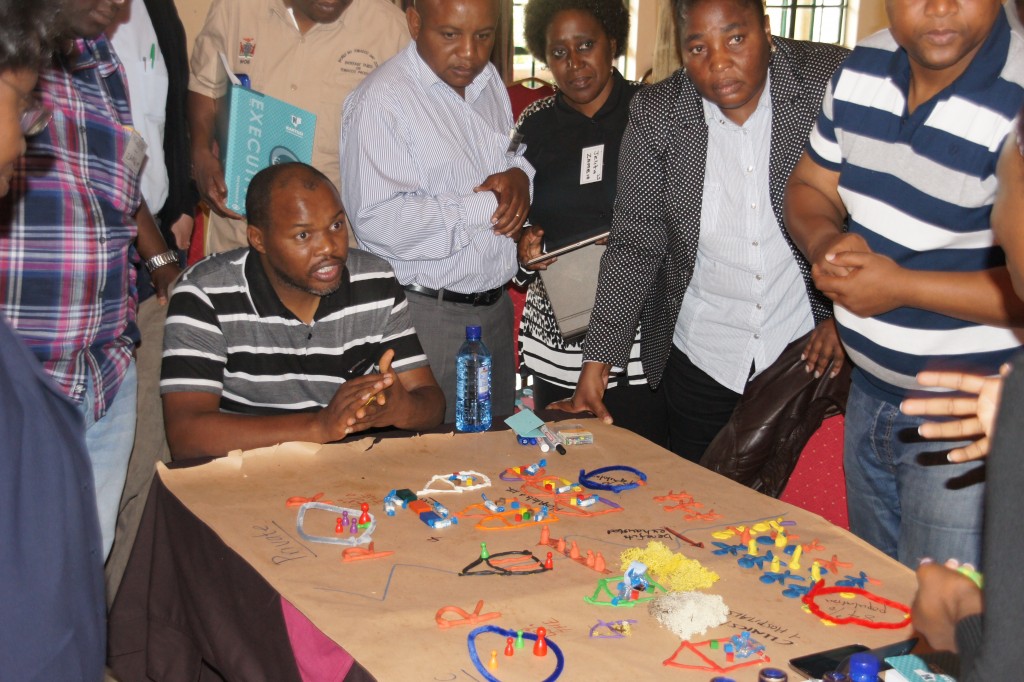
Having developed a dynamic understanding of the complexity of their systems, participants then set out to develop their collective action initiatives to implement between the current and the last module. Several teams realized that a lot of technical analysis and reform design had been done, but that further dialogue and consensus building efforts are required to move from policies and strategies to effective access to health care. Each team developed an specific objective and an implementation plan to achieve to monitor their own progress and hold each other accountable for successes and failures. A full list of each team’s collective action initiative and an assessment of the context, the relevance of the initiative and the team’s positioning to achieve their goal can be found here: 2014-12-02_CollectiveActionInitiatives
Participants were positive that equipped with the tools, skills and the commitment developed during the program, they would succeed. Olalekan Olubajo of the Nigerian National Primary Health Care Development Agency explains that to get more traction for the reforms he champions, he will now move to a more inclusive leadership style, listen more and build his team. In this, the Nigerian and all other teams will be helped by the faculty through leadership coaching and thinking partnerships, as well as technical advice coordinated with local development partners. The last module, to be held between 9 and 13 March 2015 in Turkey, will give all teams to jointly review their progress and reflect on obstacles they faced and factors that led to success.
——
Please find below some of the presentations and course materials:
2014_11_14_Slides_U-theory_P4H-LDP_Martin_Nairobi
2014_11_11_Adaptive_Systems_P4H-LDP_Ceren_Nairobi
2014_11_14_Collective_Action_P4H-LDP_Ceren_Nairobi
2014_11_14_Selected_Issues_Collective_Action_P4H-LDP_Ceren_Nairobi

